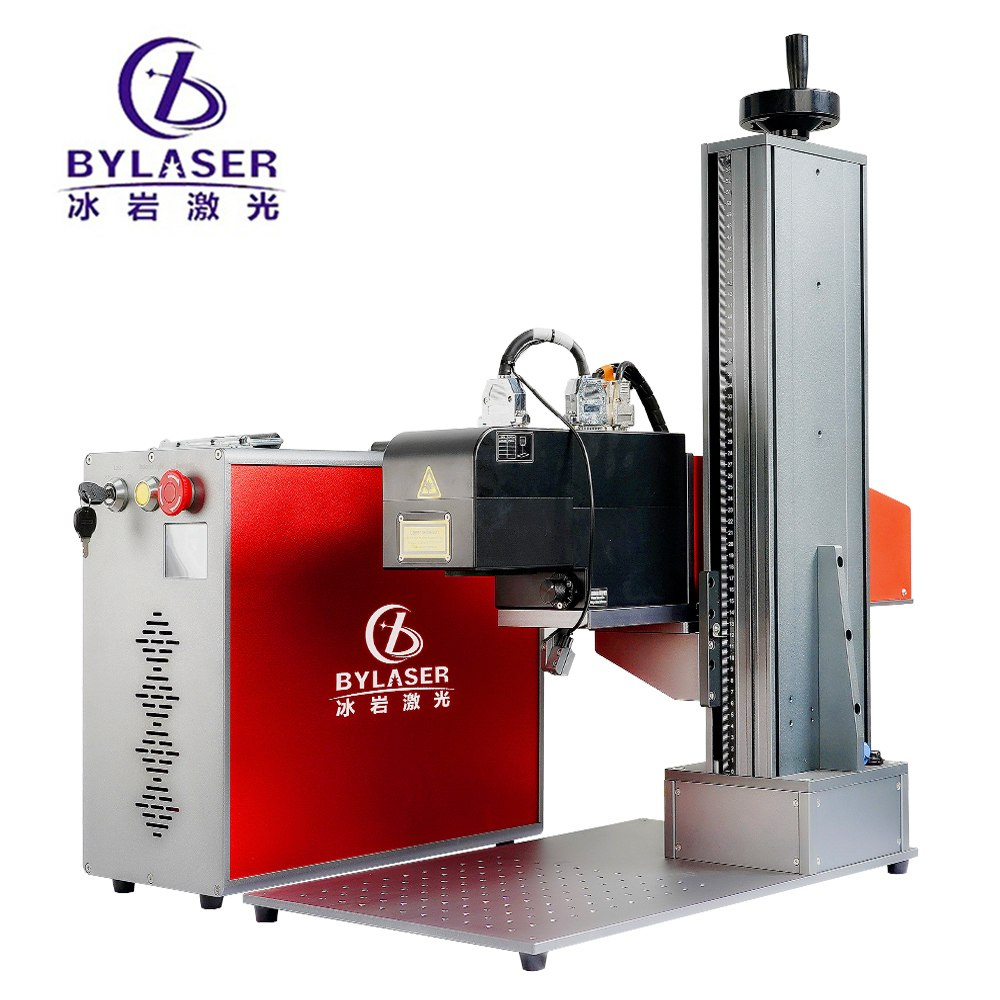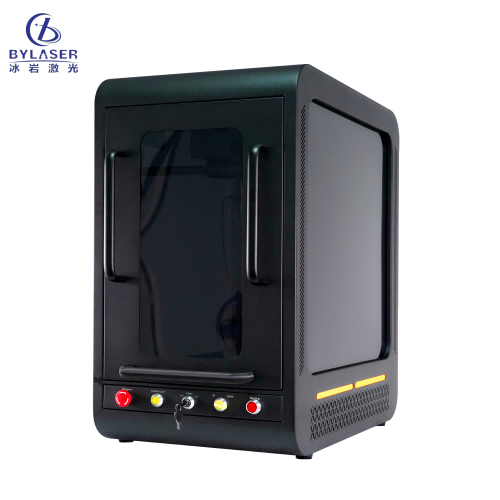The manufacturing industry has witnessed a remarkable transformation in product identification methods, with the fiber laser marking machine emerging as a groundbreaking solution. This sophisticated technology has redefined how businesses approach product traceability, branding, and quality control. As industries continue to evolve, the demand for precise, permanent, and efficient marking solutions has made fiber laser marking machines an indispensable tool across various sectors.
Modern manufacturing facilities are increasingly adopting fiber laser marking machines to meet the growing demands for high-speed production and superior marking quality. These advanced systems offer unparalleled precision and versatility, capable of marking various materials from metals to plastics with exceptional clarity and durability. The technology's ability to create permanent, high-contrast marks while maintaining material integrity has revolutionized product identification processes across multiple industries.
A fiber laser marking machine operates through a sophisticated system of optical components and precise controls. At its heart lies a fiber-optic cable doped with rare-earth elements, typically ytterbium, which generates a powerful laser beam. This beam is then directed through a series of mirrors and lenses, ultimately focusing on the target material's surface with exceptional precision.
The marking process occurs when the concentrated laser energy interacts with the material surface, creating permanent marks through various mechanisms such as ablation, annealing, or color change. The fiber laser marking machine's advanced control system ensures precise beam manipulation, allowing for intricate designs, text, and patterns to be created with remarkable accuracy.
Modern fiber laser marking machines come equipped with state-of-the-art features that enhance their functionality and versatility. High-speed galvanometer scanning systems enable rapid marking of complex patterns, while sophisticated software interfaces provide intuitive control over marking parameters. These machines can achieve marking speeds of up to several meters per second while maintaining exceptional quality and consistency.
The technology's ability to produce different marking effects, from deep engraving to surface annealing, makes it suitable for diverse applications. Advanced focusing systems and automated height adjustment mechanisms ensure consistent marking quality across irregular surfaces, while integrated vision systems enable precise positioning and quality verification.
The fiber laser marking machine demonstrates remarkable versatility in handling various materials. From stainless steel and aluminum to plastics and ceramics, these systems can effectively mark on virtually any surface. This adaptability makes them invaluable in industries ranging from automotive and aerospace to medical device manufacturing and consumer electronics.
The technology's ability to create both decorative and functional marks without damaging the underlying material has opened new possibilities in product customization and branding. Whether it's creating detailed logos on medical instruments or adding serial numbers to automotive components, fiber laser marking machines deliver consistent, high-quality results.
Implementing a fiber laser marking machine in production processes yields significant efficiency improvements and cost savings. The system's high-speed operation and minimal maintenance requirements contribute to increased throughput and reduced downtime. Unlike traditional marking methods, laser marking requires no consumables, eliminating ongoing costs for inks, chemicals, or printing plates.
The technology's precision and reliability also minimize waste and rework, leading to substantial cost savings in the long term. Additionally, the automated nature of laser marking reduces labor requirements and human error, further enhancing operational efficiency and product quality.

In today's manufacturing environment, product traceability is crucial for quality control and regulatory compliance. Fiber laser marking machines excel in creating permanent, machine-readable codes such as Data Matrix, QR codes, and barcodes. These marks enable efficient tracking throughout the supply chain and facilitate authentication of genuine products.
The technology's ability to create microscopic marks and incorporate security features helps combat counterfeiting and ensures product authenticity. This capability is particularly valuable in industries where product verification and compliance documentation are mandatory requirements.
Fiber laser marking machines represent an environmentally conscious choice for product identification. Unlike chemical etching or ink-based marking methods, laser marking produces no hazardous waste and requires no harmful substances. The process is clean, generating minimal emissions and requiring no special disposal procedures for consumables.
The technology's precise control and integrated safety features ensure operator protection while maintaining high productivity. Modern systems incorporate advanced safety interlocks, protective enclosures, and monitoring systems to prevent accidents and ensure compliance with workplace safety regulations.
The evolution of fiber laser marking machines continues with their integration into smart manufacturing environments. Industry 4.0 capabilities enable real-time monitoring, data collection, and process optimization. Advanced connectivity features allow seamless integration with production management systems, enabling automated workflow control and quality documentation.
Machine learning algorithms are being incorporated to optimize marking parameters automatically, while predictive maintenance capabilities help prevent unexpected downtime. These technological advancements are making fiber laser marking machines increasingly intelligent and autonomous.
Research and development in laser technology continue to expand the capabilities of fiber laser marking machines. New developments in beam control and pulse shaping enable even more precise and efficient marking processes. Emerging applications include the marking of advanced materials, such as composites and specialized coatings, opening new opportunities in various industries.
The integration of advanced vision systems and artificial intelligence is enhancing the ability to perform complex marking tasks while ensuring consistent quality. These technological advances are making fiber laser marking machines more versatile and capable of meeting future manufacturing challenges.
Fiber laser marking machines require minimal maintenance compared to traditional marking systems. Regular cleaning of optical components, periodic inspection of cooling systems, and occasional calibration checks are typically sufficient. Most systems can operate for thousands of hours without significant maintenance interventions.
Marks created by fiber laser marking machines are permanent and highly durable. They resist weathering, chemical exposure, and mechanical wear, maintaining their legibility throughout the product's lifetime. This permanence makes them ideal for applications requiring long-term traceability and identification.
Modern fiber laser marking machines are designed to accommodate various product sizes and shapes. They often feature adjustable working areas and focus distances, while advanced motion systems enable marking on curved or irregular surfaces. Many systems also include rotary attachments for marking cylindrical objects.
